This article delves into the potential of chia seeds as a weight-loss aid, examining their nutritional profile, benefits, and the science that supports their effectiveness in weight management. With the rising interest in natural food sources for weight loss, chia seeds have emerged as a popular option among health enthusiasts.
What Are Chia Seeds?
Chia seeds are tiny, nutrient-dense seeds derived from the Salvia hispanica plant. These seeds are celebrated for their rich content of fiber, omega-3 fatty acids, and protein, making them a favored superfood choice. They are also abundant in antioxidants, vitamins, and minerals, contributing to their overall health benefits.
How Do Chia Seeds Aid Weight Loss?
Chia seeds can support weight loss through several mechanisms:
- Appetite Suppression: The high fiber content in chia seeds absorbs water and expands in the stomach, promoting a feeling of fullness.
- Hydration: Chia seeds can absorb up to 12 times their weight in water, which aids in hydration and further enhances satiety.
- Nutrient Density: Their rich nutritional profile ensures that the body receives essential nutrients while reducing calorie intake.
High Fiber Content
The fiber in chia seeds plays a crucial role in weight management. When consumed, it expands in the stomach, leading to a prolonged feeling of fullness. This can significantly reduce calorie intake throughout the day, making it easier to adhere to a weight-loss plan.
Satiety and Reduced Hunger
Research indicates that foods high in fiber can enhance feelings of satiety. Chia seeds, when included in meals, may help control hunger and reduce the overall amount of food consumed.
Hydration and Weight Management
The ability of chia seeds to absorb water not only aids hydration but also contributes to a feeling of fullness. This can lead to decreased calorie consumption and support weight management efforts.
Are Chia Seeds Nutritionally Dense?
Chia seeds are packed with essential nutrients:
- Protein: They contain a significant amount of protein, which is crucial for muscle maintenance during weight loss.
- Healthy Fats: Rich in omega-3 fatty acids, chia seeds contribute to heart health and promote satiety.
How to Incorporate Chia Seeds Into Your Diet?
Incorporating chia seeds into your daily meals is simple and versatile:
- Chia Seed Puddings: Soaking chia seeds in milk or plant-based alternatives creates a nutritious and filling snack or breakfast option.
- Adding to Smoothies and Salads: Sprinkling chia seeds into smoothies or salads can enhance the nutritional profile without altering the taste significantly.
Are There Any Side Effects of Chia Seeds?
While generally safe, chia seeds may cause digestive discomfort in some individuals:
- Digestive Issues: Some people may experience bloating or gas, particularly if they are not adequately hydrated.
- Allergic Reactions: Though rare, some individuals may have allergic reactions to chia seeds.
What Do Studies Say About Chia Seeds and Weight Loss?
Several studies have examined the effects of chia seeds on weight loss, providing insights into their potential benefits. Research has shown that chia seeds can help with weight management when incorporated into a balanced diet, highlighting their role in promoting satiety and reducing overall calorie intake.
Can Chia Seeds Replace Other Foods?
While chia seeds offer numerous benefits, they should not be considered a direct replacement for other nutritious foods. A balanced diet is key to effective weight management. Chia seeds can complement a healthy diet but should be consumed alongside a variety of fruits, vegetables, whole grains, and lean proteins for optimal health.
Portion Control
It’s essential to practice portion control when adding chia seeds to your meals. Excessive consumption can lead to unwanted calorie intake, counteracting weight loss efforts. Aim for a balanced approach to maximize the benefits of chia seeds while maintaining a healthy diet.
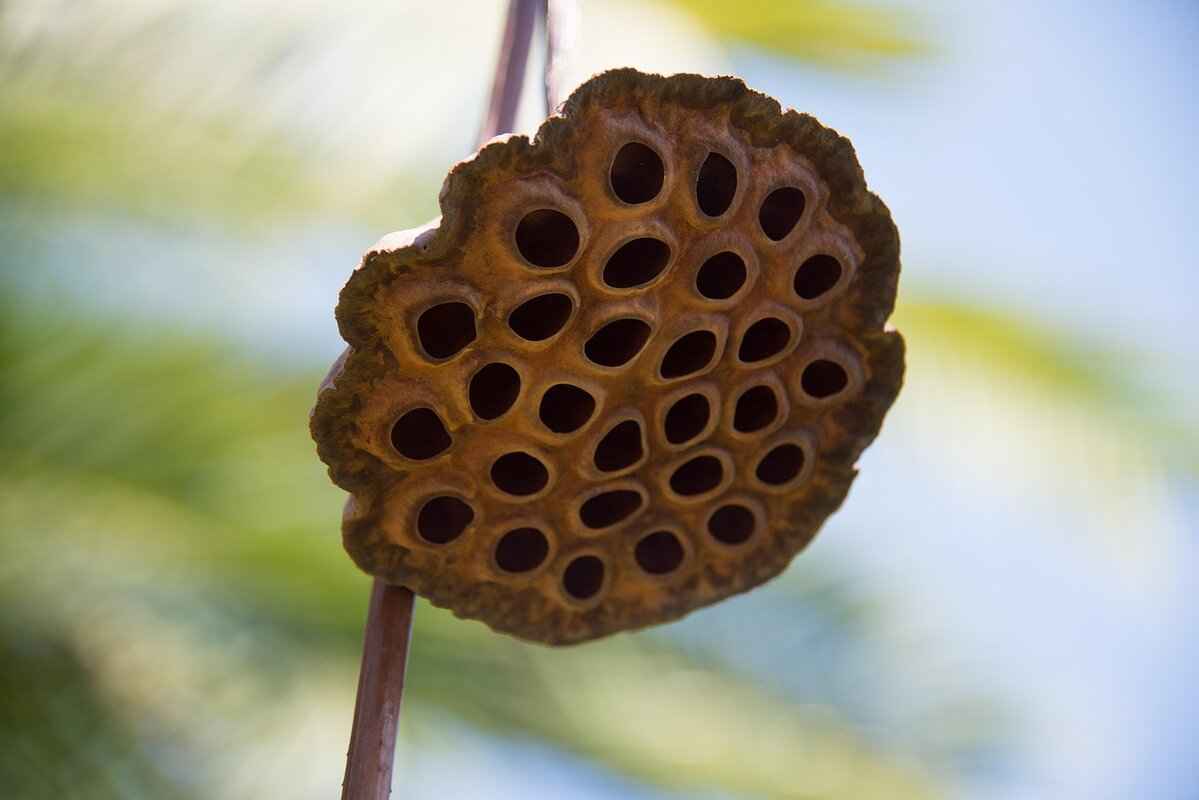
What Are Chia Seeds?
Chia seeds, derived from the Salvia hispanica plant, are tiny yet powerful seeds that have gained immense popularity in the health and wellness community. These seeds are not just small in size but are also packed with a wealth of nutrients, making them a staple in many diets. Their unique properties and versatility have led to their classification as a superfood, appealing to health enthusiasts and those looking to improve their overall well-being.
Chia seeds are tiny, oval-shaped seeds that come in various colors, including black, white, and brown. They are rich in essential nutrients, including:
- Fiber: Chia seeds are exceptionally high in fiber, which aids in digestion and helps maintain a healthy gut.
- Omega-3 Fatty Acids: These seeds are one of the best plant-based sources of omega-3 fatty acids, crucial for heart health.
- Protein: Chia seeds contain a good amount of protein, making them an excellent addition to vegetarian and vegan diets.
- Vitamins and Minerals: They are rich in calcium, magnesium, phosphorus, and various antioxidants, contributing to overall health.
Due to their high nutrient density, chia seeds are often recommended for those looking to enhance their diets with natural, wholesome foods. They can be easily incorporated into meals, whether sprinkled on salads, blended into smoothies, or used in baking.
The benefits of chia seeds extend beyond weight loss. Here are some key health advantages:
- Weight Management: Their high fiber content promotes a feeling of fullness, which can help reduce overall calorie intake.
- Heart Health: Omega-3 fatty acids in chia seeds support cardiovascular health by reducing inflammation and lowering cholesterol levels.
- Bone Health: The calcium and phosphorus content in chia seeds contribute to strong bones and teeth.
- Hydration: Chia seeds can absorb water, which helps maintain hydration levels in the body.
Incorporating chia seeds into your diet is simple and versatile:
- Chia Pudding: Mix chia seeds with milk or a dairy alternative and let them soak overnight for a nutritious breakfast.
- Smoothies: Add a tablespoon of chia seeds to your favorite smoothie for an extra nutrient boost.
- Baking: Incorporate chia seeds into baked goods, such as muffins or bread, for added texture and nutrition.
While chia seeds are generally safe for most people, there are a few considerations to keep in mind:
- Digestive Issues: Due to their high fiber content, consuming large amounts without adequate hydration can lead to digestive discomfort.
- Allergic Reactions: Although rare, some individuals may experience allergic reactions to chia seeds.
In summary, chia seeds are a nutrient-dense food that offers numerous health benefits. Their versatility makes them an easy addition to various meals, supporting not only weight management but overall health. By understanding their properties and incorporating them thoughtfully into your diet, you can enjoy the many advantages that these tiny seeds have to offer.
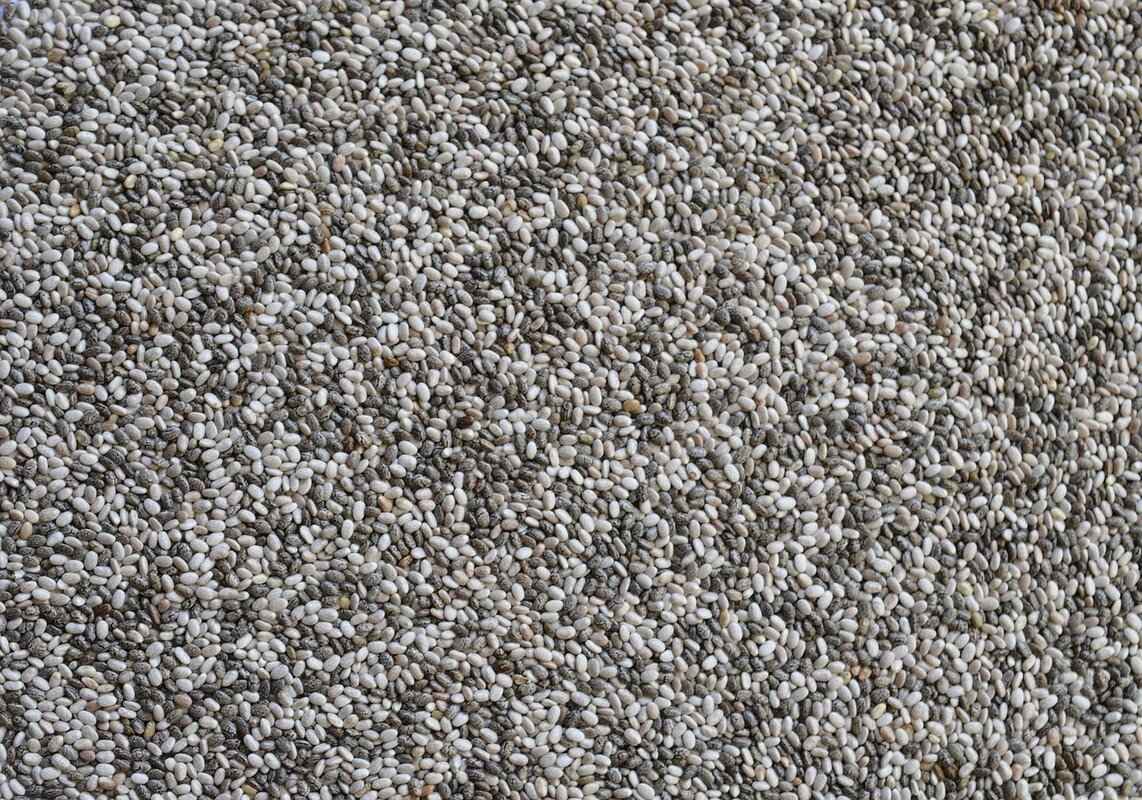
How Do Chia Seeds Aid Weight Loss?
Chia seeds, derived from the Salvia hispanica plant, have gained popularity not only for their nutritional benefits but also for their potential role in weight loss. In this section, we will delve into the mechanisms through which chia seeds can aid in weight management, exploring their effects on appetite suppression, hydration, and their overall nutrient density.
Chia seeds possess unique properties that can support weight loss efforts. These tiny seeds are packed with fiber, protein, and healthy fats, making them a powerhouse for anyone looking to shed excess weight.
The high fiber content in chia seeds is one of their most significant benefits. When consumed, chia seeds can absorb water and expand in the stomach, creating a gel-like substance that promotes a feeling of fullness. This process can lead to reduced calorie intake throughout the day.
- Feeling Full: By increasing the volume of food in the stomach without adding extra calories, chia seeds can help control hunger pangs.
- Reduced Food Cravings: The gel formed by chia seeds can slow down digestion, which helps maintain steady blood sugar levels and reduces cravings for unhealthy snacks.
Chia seeds can absorb up to 12 times their weight in water. This remarkable ability not only aids in hydration but also contributes to a sense of fullness. Staying hydrated is crucial for weight loss, as it can help manage appetite and support overall metabolic function.
Chia seeds are incredibly nutrient-dense, providing essential vitamins and minerals that support overall health during weight loss. Their rich nutrient profile includes:
- Protein: A significant amount of protein in chia seeds helps maintain muscle mass during weight loss, which is vital for a healthy metabolism.
- Healthy Fats: Chia seeds are rich in omega-3 fatty acids, which support heart health and can promote satiety, reducing the likelihood of overeating.
Incorporating chia seeds into your daily meals is both simple and versatile. Here are some practical ways to enjoy them:
- Chia Seed Puddings: Soak chia seeds in milk or a plant-based alternative overnight to create a delicious and nutritious pudding.
- Smoothies: Add a tablespoon of chia seeds to your smoothies for an extra boost of fiber and nutrients.
- Salads: Sprinkle chia seeds over salads to enhance texture and nutritional value without altering the taste significantly.
While chia seeds are generally safe for consumption, some individuals may experience digestive issues, especially if they consume them in large quantities without adequate hydration. It’s essential to:
- Increase Water Intake: When adding chia seeds to your diet, ensure you drink plenty of water to avoid potential bloating or discomfort.
- Monitor for Allergies: Although rare, some people may have allergic reactions to chia seeds. It’s important to observe your body’s response when introducing them into your diet.
In conclusion, chia seeds offer numerous benefits for weight loss through appetite suppression, hydration, and their nutrient density. By understanding how to effectively incorporate them into your diet, you can leverage their potential to support your weight management goals.
High Fiber Content
The in chia seeds is one of the key elements that contribute to their effectiveness in weight management. When consumed, these tiny seeds can absorb a significant amount of water—up to 12 times their weight—resulting in a gel-like substance that expands in the stomach. This expansion promotes a sensation of fullness, which can be incredibly beneficial for those looking to control their appetite and reduce calorie intake.
Fiber is known for its ability to enhance feelings of satiety, which is crucial for weight loss. When chia seeds are ingested, they swell in the digestive tract, which can lead to a prolonged feeling of fullness. This can help individuals avoid unnecessary snacking or overeating, ultimately contributing to a reduction in calorie consumption.
- Increased Volume: The gel-like consistency created by the fiber in chia seeds increases the volume of food in the stomach, signaling to the brain that it’s time to stop eating.
- Slow Digestion: Fiber slows down the digestion process, leading to a gradual release of energy and prolonging the feeling of fullness.
- Blood Sugar Regulation: High-fiber foods like chia seeds can help stabilize blood sugar levels, reducing the likelihood of hunger pangs.
In addition to promoting satiety, chia seeds also offer digestive health benefits. Their high fiber content aids in regulating bowel movements and preventing constipation. A healthy digestive system is essential for effective weight loss, as it allows for better nutrient absorption and waste elimination.
Integrating chia seeds into your diet can be both easy and delicious. Here are some practical ways to add them to your meals:
- Chia Seed Pudding: Combine chia seeds with milk (dairy or plant-based) and let them soak overnight for a nutritious breakfast or snack.
- Smoothies: Add a tablespoon of chia seeds to your smoothies for an extra fiber boost without altering the flavor.
- Salads: Sprinkle chia seeds on salads to enhance texture and nutritional value.
While chia seeds are generally safe for most individuals, it’s important to be mindful of their high fiber content. Consuming too much fiber too quickly can lead to digestive discomfort, such as bloating or gas. To minimize these effects, it’s advisable to gradually increase fiber intake and ensure adequate hydration.
Nutritionists and health experts often recommend chia seeds as a part of a balanced diet. Their ability to promote satiety and support digestive health makes them a valuable addition for those looking to manage their weight. However, experts also emphasize that chia seeds should complement a variety of other nutrient-dense foods, rather than replace them.
In summary, the in chia seeds plays a critical role in weight management by enhancing feelings of fullness, supporting digestive health, and stabilizing blood sugar levels. By incorporating chia seeds into a balanced diet, individuals can harness their benefits while enjoying a variety of flavors and textures.
Satiety and Reduced Hunger
When it comes to weight management, understanding the factors that influence appetite and satiety is crucial. One such factor is dietary fiber, which plays a significant role in how full we feel after eating. Among the various sources of fiber, chia seeds have gained attention for their unique properties that may help control hunger and promote weight loss.
Chia seeds are exceptionally high in fiber, containing approximately 11 grams of fiber per ounce. This high fiber content is key to their ability to enhance feelings of fullness. When chia seeds are consumed, they absorb water and swell in the stomach, creating a gel-like substance. This expansion not only takes up space in the stomach but also slows down the digestion process, leading to prolonged feelings of satiety.
Numerous studies have investigated the impact of fiber-rich foods on hunger and satiety. Research indicates that incorporating high-fiber foods like chia seeds into your diet can significantly enhance feelings of fullness, leading to a reduction in overall calorie intake. In one study, participants who consumed meals enriched with chia seeds reported feeling fuller for longer periods compared to those who did not.
- Gel Formation: When chia seeds come into contact with liquid, they form a gel. This gel slows gastric emptying, which means food stays in the stomach longer, contributing to a feeling of fullness.
- Blood Sugar Regulation: High-fiber foods can also help stabilize blood sugar levels, preventing spikes and crashes that often lead to increased hunger.
- Hormonal Response: Consumption of fiber-rich foods can influence hormones related to appetite regulation, such as ghrelin and peptide YY, further promoting feelings of fullness.
To take advantage of the satiety-enhancing benefits of chia seeds, consider the following practical tips:
- Add to Smoothies: Blend chia seeds into your morning smoothie for an added fiber boost.
- Chia Seed Pudding: Soak chia seeds in almond milk or yogurt overnight to create a nutritious pudding that keeps you full.
- Top Your Salads: Sprinkle chia seeds on salads for added crunch and nutrition.
While chia seeds can be beneficial for appetite control, it’s essential to consume them in moderation. Overconsumption may lead to digestive discomfort, such as bloating or gas. Additionally, ensure you are drinking enough water when consuming chia seeds, as they absorb a significant amount of liquid.
Incorporating chia seeds into your diet may be an effective strategy for enhancing feelings of satiety and reducing hunger. Their high fiber content, combined with their unique ability to absorb water and form a gel, makes them a powerful ally in weight management. By understanding how chia seeds work and incorporating them into your meals, you can leverage their benefits for better appetite control and overall health.
Digestive Health Benefits
Chia seeds are often hailed as a superfood, and one of their most significant benefits lies in their ability to promote digestive health. This is primarily due to their impressive fiber content, which plays a crucial role in maintaining a healthy digestive system. In this section, we will explore how chia seeds contribute to digestive health and overall wellness, especially when it comes to weight loss.
Chia seeds contain a remarkable amount of dietary fiber, with about 10 grams of fiber per ounce (28 grams). This high fiber content helps to:
- Regulate Bowel Movements: The soluble fiber in chia seeds absorbs water and forms a gel-like consistency in the digestive tract. This gel helps to bulk up stool and makes it easier to pass, thereby promoting regular bowel movements.
- Prevent Constipation: By enhancing stool consistency, chia seeds can help alleviate constipation, a common issue that many people face, especially when trying to lose weight.
- Support Gut Health: The fiber in chia seeds acts as a prebiotic, feeding the beneficial bacteria in the gut. A healthy gut microbiome is essential for overall digestive health and can even influence weight management.
Maintaining a healthy digestive system is vital for anyone looking to lose weight. When digestion is efficient, the body can better absorb nutrients and eliminate waste. Here’s how chia seeds aid in this process:
- Enhanced Nutrient Absorption: A well-functioning digestive system ensures that the body can effectively absorb the nutrients from the food consumed. Chia seeds, being nutrient-dense, provide essential vitamins and minerals that support overall health.
- Reduced Bloating: By preventing constipation and promoting regular bowel movements, chia seeds can help minimize bloating, making individuals feel lighter and more comfortable, which is particularly beneficial during weight loss.
- Improved Appetite Regulation: A healthy digestive system can help regulate hunger hormones, leading to better appetite control. This can result in reduced cravings and a lower overall caloric intake.
Incorporating chia seeds into your diet is easy and versatile. Here are some practical ways to enjoy their digestive health benefits:
- Chia Seed Pudding: Soak chia seeds in almond milk or yogurt overnight to create a delicious pudding that can be enjoyed for breakfast or as a snack.
- Smoothies: Add a tablespoon of chia seeds to your smoothies for an extra fiber boost without altering the taste.
- Baked Goods: Incorporate chia seeds into your baking recipes, such as muffins or bread, to enhance their nutritional profile.
In conclusion, the of chia seeds are significant and can play a crucial role in weight loss efforts. By promoting regular bowel movements, preventing constipation, and enhancing nutrient absorption, chia seeds can contribute to overall wellness. Their high fiber content not only aids in digestion but also helps control appetite, making them an excellent addition to any weight-loss plan. As always, it’s essential to maintain a balanced diet and consult with a healthcare professional before making significant dietary changes.
Hydration and Weight Management
Chia seeds, often hailed as a superfood, have gained popularity for their numerous health benefits, particularly in the realm of weight management. One of the standout features of chia seeds is their remarkable ability to absorb water, which can significantly aid in hydration and contribute to a feeling of fullness. This article delves into the relationship between chia seeds, hydration, and weight management, exploring how these tiny seeds can be a valuable addition to your diet.
Chia seeds can absorb up to 12 times their weight in water. This unique property not only helps in maintaining hydration but also plays a crucial role in how they can assist with weight management. When chia seeds are soaked in water or any liquid, they form a gel-like substance, which can help keep you hydrated for longer periods. Staying hydrated is vital for overall health and can prevent feelings of fatigue and lethargy that often accompany dehydration.
The gel-like texture formed when chia seeds absorb water contributes to a sensation of fullness. This can lead to decreased calorie consumption, making chia seeds an effective tool for those looking to manage their weight. When you consume chia seeds, they expand in your stomach, which can help curb your appetite and reduce the likelihood of overeating. This appetite suppression is particularly beneficial for individuals trying to lose weight or maintain a healthy diet.
- Enhanced Metabolism: Proper hydration is essential for optimal metabolic function. When the body is well-hydrated, it can efficiently process nutrients and burn calories.
- Improved Digestion: Staying hydrated aids in digestion and can prevent issues such as constipation, which is important during weight loss efforts.
- Reduced Caloric Intake: Drinking water before meals can lead to reduced calorie intake, and when combined with chia seeds, this effect can be amplified.
To maximize the benefits of chia seeds, consider incorporating them into your daily routine. Here are a few practical ways to include them in your diet:
- Chia Seed Drinks: Soak chia seeds in water, juice, or smoothies for a refreshing drink that boosts hydration and satiety.
- Chia Pudding: Combine chia seeds with almond milk or coconut milk and let them sit overnight. This creates a delicious and nutritious pudding that is perfect for breakfast or a snack.
- Sprinkle on Foods: Add chia seeds to salads, yogurt, or oatmeal to enhance your meals with added nutrients and hydration benefits.
While chia seeds offer numerous benefits, it is important to consume them in moderation. Some individuals may experience digestive discomfort if they are not adequately hydrated when consuming chia seeds. Therefore, it is essential to drink plenty of water throughout the day, especially when incorporating chia seeds into your diet.
In summary, chia seeds are a powerful ally in the quest for effective weight management. Their ability to absorb water and promote hydration, combined with their high fiber content, makes them an excellent choice for those looking to control their appetite and reduce calorie intake. By incorporating chia seeds into your meals, you can enhance your hydration levels and support your weight management goals.
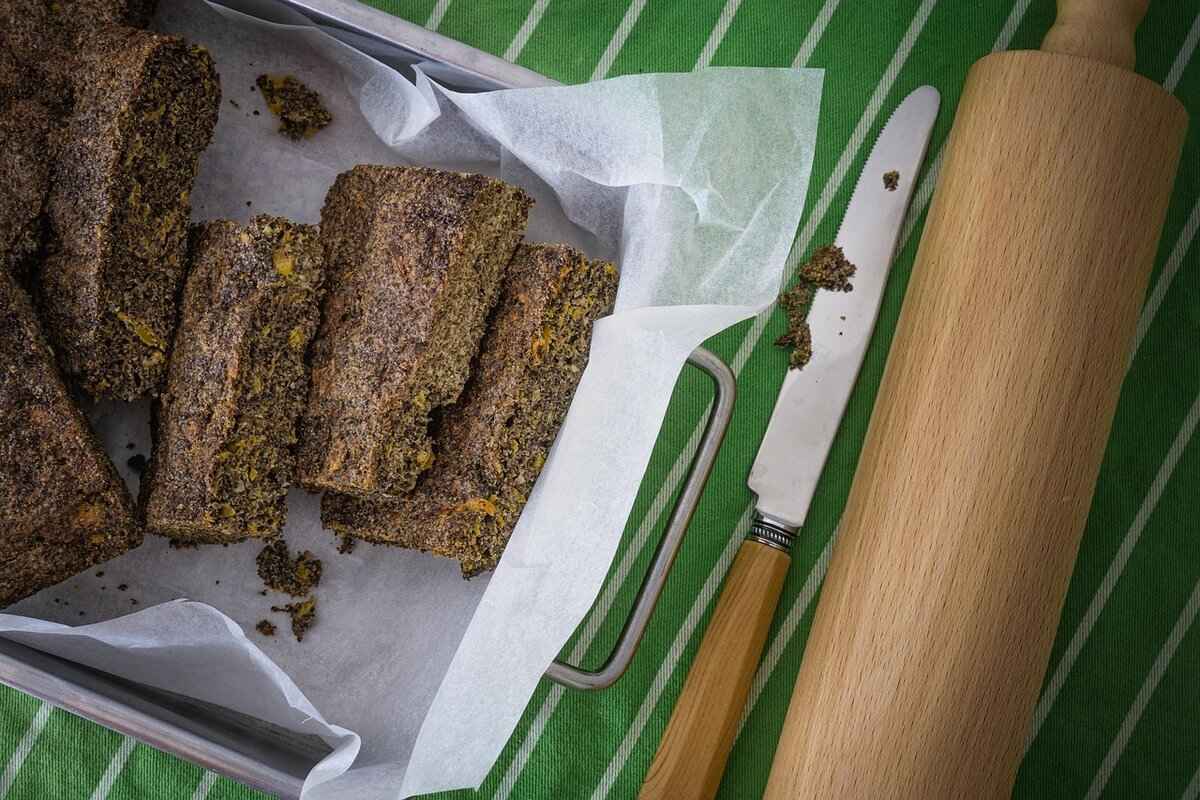
Are Chia Seeds Nutritionally Dense?
Chia seeds, often heralded as a superfood, are small yet mighty seeds that boast an impressive nutritional profile. Derived from the Salvia hispanica plant, these seeds are not only versatile but also packed with essential nutrients that can support overall health, particularly during weight loss journeys.
Chia seeds are known for their nutritional density. They contain a wealth of nutrients, including:
- Protein: Essential for muscle maintenance and repair.
- Omega-3 Fatty Acids: Beneficial for heart health and reducing inflammation.
- Fiber: Aids in digestion and promotes a feeling of fullness.
- Vitamins and Minerals: Rich in calcium, magnesium, phosphorus, and antioxidants.
The combination of these nutrients can significantly contribute to overall health, especially during weight loss. Here’s how:
Chia seeds contain approximately 4 grams of protein per ounce. This is particularly beneficial for those looking to maintain muscle mass while losing weight. Increased protein intake can also enhance feelings of satiety, helping to curb cravings and reduce overall calorie consumption.
These seeds are an excellent source of omega-3 fatty acids, which are crucial for heart health. Healthy fats play a role in satiety, making it easier to adhere to a weight-loss plan without feeling deprived. Incorporating chia seeds into your diet can help ensure you’re getting the fats your body needs without excess calories.
Chia seeds are exceptionally high in fiber, with about 11 grams per ounce. This fiber absorbs water and expands in the stomach, promoting a feeling of fullness and reducing hunger. By increasing fiber intake, individuals may find it easier to manage their appetite and maintain a calorie deficit, which is essential for weight loss.
Beyond weight loss, chia seeds offer several health benefits:
Thanks to their fiber content, chia seeds can help regulate bowel movements and prevent constipation. A healthy digestive system is crucial for overall wellness, especially when making dietary changes for weight loss.
Chia seeds can absorb up to 12 times their weight in water, making them an excellent addition to your hydration strategy. Staying hydrated is vital for metabolism and can aid in weight management.
Adding chia seeds to your meals is simple and versatile. Here are some practical ways to do so:
- Chia Seed Puddings: Soak chia seeds in milk or a dairy-free alternative to create a nutritious pudding.
- Smoothies: Blend chia seeds into your favorite smoothies for added nutrition.
- Salads: Sprinkle chia seeds on salads for an extra crunch and nutritional boost.
While chia seeds are generally safe for most people, some may experience digestive discomfort, particularly if consumed in large quantities without adequate hydration. It’s important to gradually incorporate them into your diet and increase water intake to avoid potential bloating or gas.
Research indicates that chia seeds can be a beneficial addition to a balanced diet. They not only provide essential nutrients but also support weight management by enhancing satiety and reducing calorie intake. Long-term studies are needed to fully understand their effects, but current findings are promising.
Protein Content
When it comes to weight loss, the role of protein cannot be overstated. In the realm of superfoods, chia seeds have emerged as a powerful ally due to their impressive protein content. This article delves into the significance of protein in chia seeds, exploring how it contributes to muscle maintenance, satiety, and overall weight management.
Protein plays a crucial role in the body, especially during weight loss. It is essential for muscle maintenance, which is vital when the body is in a caloric deficit. Losing weight often leads to a reduction in muscle mass, which can slow down metabolism. By incorporating protein-rich foods like chia seeds into your diet, you can help preserve muscle while shedding fat.
Chia seeds are not just a source of fiber and healthy fats; they are also packed with protein. In fact, they contain approximately 4 grams of protein per 2 tablespoons, making them a fantastic addition to any diet. This protein content is significant, especially for those looking to increase their intake without consuming animal products.
One of the most compelling benefits of protein is its ability to enhance satiety. Research shows that high-protein foods can lead to a greater feeling of fullness, which reduces overall calorie intake. When chia seeds are consumed, their protein content, combined with their high fiber and healthy fat levels, creates a powerful effect on hunger.
- Increased Fullness: The combination of protein and fiber in chia seeds helps slow digestion, keeping you feeling satisfied longer.
- Reduced Cravings: Higher protein intake has been linked to fewer cravings, which can be particularly beneficial for those trying to lose weight.
As you embark on a weight loss journey, preserving muscle mass is essential. Chia seeds provide a plant-based protein source that can help maintain muscle integrity. This is particularly important for individuals who engage in regular exercise, as protein is necessary for muscle repair and recovery.
Incorporating chia seeds into your meals can support muscle health while contributing to a balanced diet. For example, adding them to smoothies, oatmeal, or yogurt can boost your protein intake without added calories from unhealthy sources.
Another aspect of weight management is controlling cravings. The protein content in chia seeds can play a significant role in this area. When you consume foods high in protein, your body releases hormones that signal fullness, reducing the desire for unhealthy snacks.
Additionally, chia seeds’ ability to absorb water and expand in your stomach means they can help you feel full, further curbing those pesky cravings that often derail weight loss efforts.
Incorporating chia seeds into your daily meals is easy and versatile. Here are some practical suggestions:
- Chia Seed Pudding: Soak chia seeds in milk or a plant-based alternative overnight for a nutritious breakfast or snack.
- Smoothie Boost: Add a tablespoon of chia seeds to your favorite smoothie for an extra protein kick.
- Baking: Include chia seeds in your baking recipes, such as muffins or bread, to enhance their nutritional profile.
In conclusion, chia seeds are an excellent source of protein that can significantly aid in weight loss efforts. Their unique combination of protein, fiber, and healthy fats makes them a versatile and powerful food choice. By incorporating chia seeds into your diet, you can enhance satiety, reduce cravings, and maintain muscle mass, all of which are crucial for successful weight management.
Healthy Fats
are essential components of a balanced diet, providing numerous health benefits that go beyond just weight management. Among the various sources of healthy fats, chia seeds stand out due to their impressive nutritional profile, particularly their high content of omega-3 fatty acids.
Omega-3 fatty acids are a type of polyunsaturated fat that play a crucial role in maintaining heart health, brain function, and reducing inflammation. There are three main types of omega-3 fatty acids: ALA (alpha-linolenic acid), EPA (eicosapentaenoic acid), and DHA (docosahexaenoic acid). Chia seeds are particularly rich in ALA, making them an excellent plant-based source of these essential fats.
Including healthy fats in your diet can actually aid in weight loss and management. Here’s how:
- Promotes Satiety: Healthy fats, such as those found in chia seeds, can help you feel fuller for longer periods. This satiety can lead to reduced overall calorie intake, making it easier to adhere to a weight-loss plan.
- Stabilizes Blood Sugar Levels: Healthy fats can help stabilize blood sugar levels, preventing the spikes and crashes that often lead to cravings and overeating.
- Supports Metabolism: Fats are essential for the absorption of fat-soluble vitamins (A, D, E, and K), which play a role in metabolic processes.
Chia seeds are not only rich in omega-3 fatty acids but also contain a balanced ratio of omega-6 fatty acids. This balance is vital for maintaining optimal health. Incorporating chia seeds into your diet can enhance your intake of these healthy fats without adding excessive calories.
Incorporating chia seeds into your diet is simple and versatile. Here are some practical ways to enjoy their benefits:
- Chia Seed Smoothies: Blend chia seeds into your morning smoothie for a nutritious boost.
- Baking: Add chia seeds to your baking recipes, such as muffins or pancakes, for added nutrition.
- Salads and Dressings: Sprinkle chia seeds over salads or mix them into dressings for extra texture and health benefits.
While healthy fats are beneficial, moderation is key. Overconsumption can lead to excess calorie intake, which may counteract weight loss efforts. It’s also important to consider the source of fats; prioritize whole food sources like chia seeds, avocados, and nuts over processed fats.
Nutritionists and health experts emphasize the importance of including healthy fats in your diet. According to the American Heart Association, replacing saturated fats with unsaturated fats can lower the risk of heart disease. Additionally, studies suggest that diets rich in healthy fats can improve overall health and support weight management.
In conclusion, incorporating healthy fats, particularly from sources like chia seeds, can be a strategic approach to weight loss and overall health. They not only promote satiety but also support metabolic functions, making them a valuable addition to any diet.
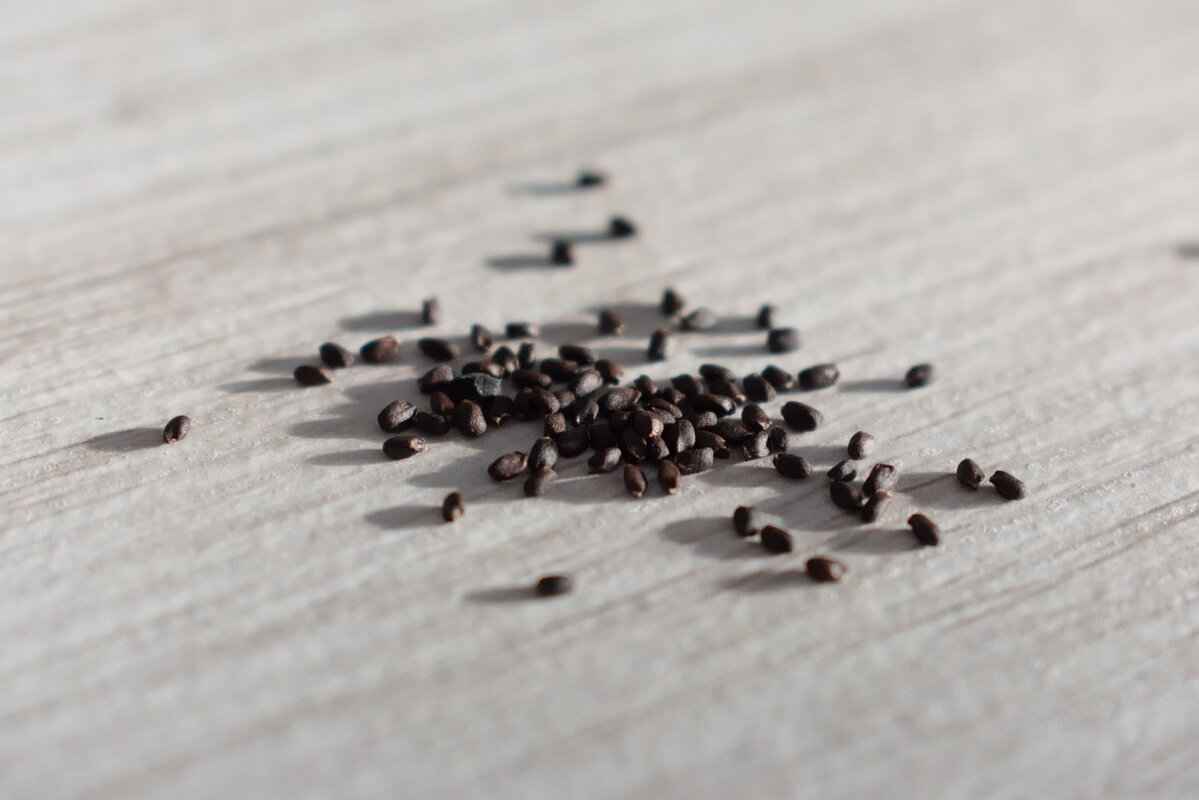
How to Incorporate Chia Seeds Into Your Diet?
Incorporating chia seeds into your diet is not only easy but also a fantastic way to boost your nutritional intake. These tiny seeds are packed with essential nutrients and can be seamlessly integrated into various meals and snacks. Here are some effective and delicious ways to enjoy chia seeds daily.
- Chia Seed Puddings: One of the most popular methods to enjoy chia seeds is by making chia seed pudding. Combine 3 tablespoons of chia seeds with 1 cup of milk (dairy or plant-based) and let it sit in the refrigerator overnight. The seeds will absorb the liquid, creating a creamy and satisfying pudding that can be flavored with fruits, honey, or vanilla.
- Adding to Smoothies: Chia seeds can easily be added to your morning smoothies. Simply blend 1-2 tablespoons of chia seeds into your favorite smoothie recipe. They not only enhance the nutritional value but also contribute to a thicker texture.
- Sprinkling on Yogurt: Another simple way to incorporate chia seeds is by sprinkling them on top of your yogurt. This adds a delightful crunch and a dose of fiber to your snack or breakfast.
- In Baking: Chia seeds can be included in baked goods such as muffins, bread, and pancakes. Substitute a portion of the flour with chia seeds or add them whole to your batter for added nutrition.
- In Salads: For a nutritious boost, sprinkle chia seeds on salads. They provide a pleasant crunch and are a great source of omega-3 fatty acids.
The versatility of chia seeds lies in their ability to absorb liquid and form a gel-like consistency, which makes them ideal for various recipes. This property not only enhances texture but also aids in hydration, making chia seeds an excellent addition to any meal. Furthermore, they have a neutral flavor, allowing them to blend seamlessly into both sweet and savory dishes.
Yes, chia seeds can serve as a fantastic egg substitute in vegan recipes. To replace one egg, mix 1 tablespoon of chia seeds with 2.5 tablespoons of water and let it sit for about 15 minutes until it forms a gel. This mixture can be used in baking to bind ingredients together, making it a great option for those following a plant-based diet.
- Chia Fresca: A refreshing drink made by mixing 1 tablespoon of chia seeds with 1 cup of water and a squeeze of lemon or lime. This hydrating beverage is perfect for hot days.
- Chia Seed Jam: Combine mashed fruits with chia seeds to create a healthy jam. Simply mix 2 cups of fruit with 2 tablespoons of chia seeds and let it sit until it thickens.
To reap the benefits of chia seeds, aim to incorporate them into your meals consistently. A daily intake of 1-2 tablespoons is recommended, but it’s essential to increase your water intake when consuming chia seeds to avoid digestive discomfort. Experiment with different recipes and find what works best for your taste and lifestyle.
In conclusion, chia seeds are a nutrient powerhouse that can easily fit into your daily diet. Their versatility allows for a myriad of culinary applications, making healthy eating enjoyable and convenient. Start incorporating chia seeds today and discover the health benefits they can bring!
Chia Seed Puddings
Chia seed puddings have gained immense popularity as a nutritious and versatile option for breakfast or snacks. These delightful treats are not only easy to prepare but also packed with health benefits, making them a favorite among health-conscious individuals. By soaking chia seeds in milk or plant-based alternatives, you create a creamy, satisfying pudding that is both nutritious and filling.
Chia seeds are known for their remarkable ability to absorb liquid, expanding up to 12 times their weight. This unique property is what makes chia seed puddings such a great choice for those looking to manage their weight. The seeds swell as they soak, creating a gel-like consistency that promotes fullness and helps control appetite.
- Rich in Nutrients: Chia seeds are loaded with essential nutrients, including omega-3 fatty acids, fiber, protein, and various vitamins and minerals. This makes chia seed puddings a nutrient-dense food option.
- High in Fiber: The high fiber content in chia seeds aids digestion and promotes regularity, which is crucial for overall digestive health.
- Supports Weight Loss: Incorporating chia seed puddings into your diet can help you feel full longer, potentially leading to reduced calorie intake and effective weight management.
Making chia seed pudding is incredibly simple and requires minimal ingredients. Here’s a basic recipe to get you started:
Ingredients:- 1/4 cup chia seeds- 1 cup milk (or plant-based alternative)- 1-2 tablespoons sweetener (honey, maple syrup, or agave)- 1 teaspoon vanilla extract (optional)Instructions:1. In a bowl or jar, combine chia seeds, milk, sweetener, and vanilla extract.2. Stir well to prevent clumping.3. Cover and refrigerate for at least 2 hours or overnight.4. Once set, stir again and enjoy your pudding topped with fruits, nuts, or granola.
One of the best aspects of chia seed puddings is their versatility. You can customize them to suit your taste preferences and dietary needs:
- Flavor Variations: Experiment with different flavors by adding cocoa powder, matcha, or fruit purees.
- Toppings: Enhance your pudding with toppings like fresh fruits, nuts, seeds, or coconut flakes for added texture and flavor.
- Layering: Create a parfait by layering chia pudding with yogurt and fruits for a visually appealing and nutritious treat.
While chia seed puddings are generally safe and healthy, it’s essential to consume them in moderation. Some individuals may experience digestive discomfort if they consume large quantities of chia seeds without adequate hydration. Always ensure you’re drinking enough water when incorporating high-fiber foods like chia seeds into your diet.
Chia seed puddings are a fantastic way to enjoy the numerous health benefits of chia seeds while satisfying your taste buds. With their rich nutrient profile and versatility, they can easily fit into any dietary regimen. Whether enjoyed as a breakfast, snack, or dessert, chia seed puddings are a delicious and nutritious choice that can contribute to your overall wellness.
Adding to Smoothies and Salads
Incorporating chia seeds into your meals is a simple yet effective way to boost their nutritional value. These tiny seeds are not only versatile but also packed with essential nutrients that can enhance your overall health. One of the easiest ways to include chia seeds in your diet is by adding them to smoothies and salads. This article will explore the benefits of this practice and provide practical tips for maximizing their health benefits.
- Nutritional Boost: Chia seeds are rich in omega-3 fatty acids, fiber, and protein, making them an excellent addition to smoothies. These nutrients can support heart health, improve digestion, and help maintain muscle mass.
- Texture and Consistency: When blended, chia seeds can create a thicker, creamier texture in smoothies. Their ability to absorb liquid allows them to expand, enhancing the smoothie’s consistency without altering its flavor.
- Easy to Use: Simply add a tablespoon or two of chia seeds to your smoothie ingredients before blending. They blend seamlessly and do not require any special preparation.
- Crunchy Texture: Sprinkling chia seeds over salads adds a delightful crunch that can enhance the eating experience. This texture contrasts beautifully with the crispness of fresh vegetables.
- Increased Satiety: The fiber content in chia seeds helps you feel full longer, making your salad more satisfying. This can be particularly beneficial if you’re looking to manage your weight.
- Flavor Neutrality: Chia seeds have a mild flavor, allowing them to blend well with various dressings and ingredients without overpowering the dish.
1. Start Small: If you’re new to chia seeds, begin by adding a small amount (1 teaspoon) to your smoothies or salads and gradually increase as you become accustomed to their texture.2. Soak Before Use: For salads, consider soaking chia seeds in water or your favorite dressing for about 15 minutes before adding them. This will allow them to expand and create a gel-like texture, enhancing the dish.3. Pair with Fruits and Veggies: Combine chia seeds with fruits like bananas, berries, or mangoes in smoothies, or mix them with leafy greens, nuts, and seeds in salads for a nutrient-packed meal.
Adding chia seeds to smoothies and salads is a simple and effective way to enhance the nutritional profile of your meals. Not only do they provide essential nutrients, but they also improve texture and satiety. By incorporating chia seeds into your diet, you can enjoy a range of health benefits while maintaining a delicious and satisfying eating experience.
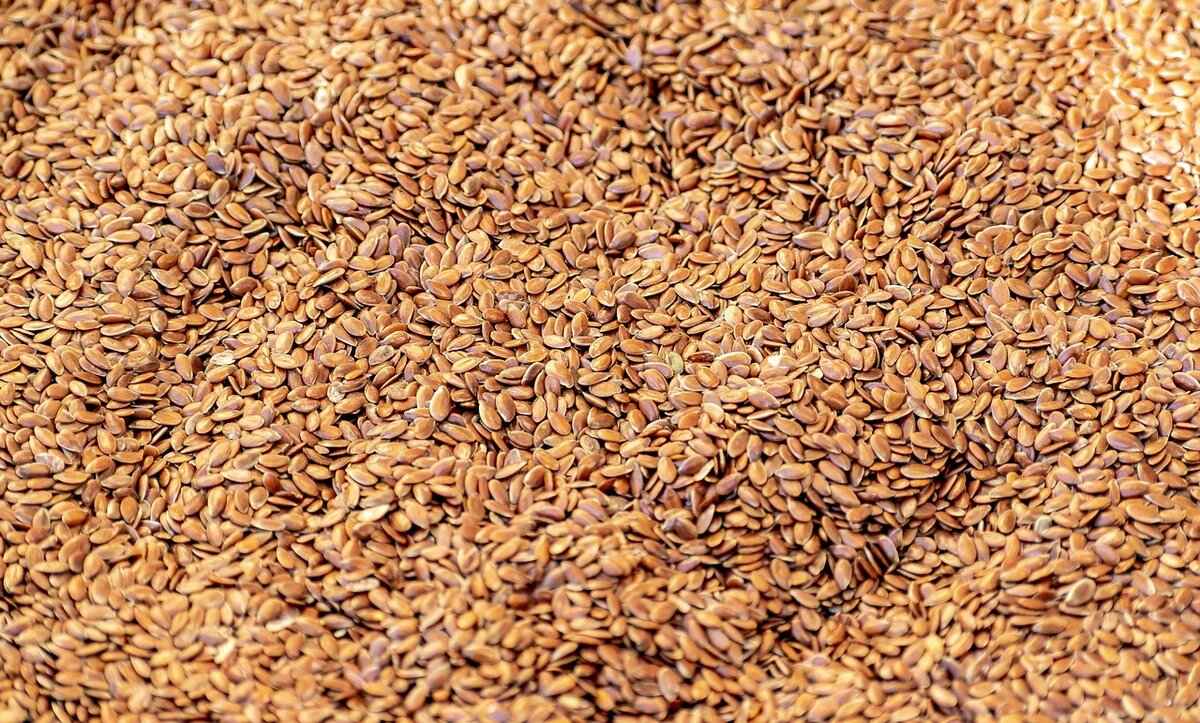
Are There Any Side Effects of Chia Seeds?
Chia seeds have gained popularity as a superfood due to their numerous health benefits, particularly in weight management. However, like any food, they come with potential side effects that consumers should be aware of.
While chia seeds are generally considered safe for most people, it is important to understand that they may cause some digestive discomfort in certain individuals, especially when consumed in large quantities. This section will explore the potential side effects associated with chia seeds, ensuring you can enjoy their benefits while minimizing any risks.
One of the most common side effects of chia seeds is related to digestion. When consumed in excess or without adequate hydration, chia seeds can lead to:
- Bloating: The high fiber content in chia seeds can cause bloating, particularly if your body is not used to a high-fiber diet.
- Gas: Some individuals may experience gas as the body processes the fiber from chia seeds.
- Constipation: Inadequate water intake while consuming fiber-rich foods may lead to constipation, as fiber requires water to move through the digestive system effectively.
Chia seeds can absorb up to 12 times their weight in water. This property can be beneficial for hydration but also means that it’s crucial to drink enough fluids when incorporating chia seeds into your diet. Insufficient hydration can exacerbate the digestive issues mentioned above.
Although rare, some individuals may be allergic to chia seeds. Symptoms of an allergic reaction can include:
- Rashes: Skin reactions may occur in sensitive individuals.
- Swelling: Swelling of the face, lips, or throat can indicate a serious allergic response.
- Difficulty breathing: This is a severe reaction and requires immediate medical attention.
If you suspect you may have an allergy, it is advisable to consult with a healthcare professional before introducing chia seeds into your diet.
To enjoy the benefits of chia seeds while minimizing potential side effects, consider the following tips:
- Start Small: Begin with a small amount of chia seeds to allow your digestive system to adjust.
- Stay Hydrated: Ensure you drink plenty of water when consuming chia seeds to aid digestion.
- Gradual Increase: Gradually increase your intake over time, allowing your body to adapt to the higher fiber content.
If you experience persistent digestive issues or suspect an allergy after consuming chia seeds, it is essential to consult with a healthcare professional. They can provide personalized advice based on your health history and dietary needs.
In conclusion, while chia seeds offer numerous health benefits, understanding their potential side effects is crucial for safe consumption. By being aware of these risks and taking appropriate precautions, you can incorporate chia seeds into your diet effectively and enjoy their nutritional advantages.
Digestive Issues
When incorporating chia seeds into your diet, it’s essential to be aware of potential that some individuals may experience. These tiny seeds, while nutrient-dense and beneficial for weight loss, can lead to discomfort if not consumed properly. Understanding how to mitigate these effects can help you enjoy the benefits of chia seeds without the drawbacks.
Some people may notice bloating, gas, or other digestive discomforts after consuming chia seeds. These symptoms are often linked to their high fiber content, which can be challenging for some digestive systems to handle, particularly if they are not used to a high-fiber diet.
One of the primary reasons for digestive discomfort when consuming chia seeds is inadequate hydration. Chia seeds can absorb up to 12 times their weight in water. When they are not consumed with sufficient fluids, they can expand in the digestive tract, leading to a sensation of fullness that can be uncomfortable for some. Therefore, it is crucial to increase your water intake when adding chia seeds to your diet.
- Start Slowly: If you’re new to chia seeds, begin with a small amount, such as one teaspoon, and gradually increase your intake.
- Soak Before Consumption: Soaking chia seeds in water or milk before eating can help them expand and soften, making them easier to digest.
- Combine with Hydrating Foods: Pair chia seeds with fruits or smoothies, which have high water content, to enhance hydration.
It’s essential to pay attention to how your body reacts after consuming chia seeds. If you experience persistent digestive issues, consider adjusting the amount you consume or the way you prepare them. For some, it may take time for the digestive system to adapt to increased fiber intake.
If digestive discomfort continues, it may be wise to consult with a healthcare professional. They can provide personalized advice and help determine if chia seeds are suitable for your diet, especially if you have existing digestive conditions.
If you find that chia seeds do not agree with your digestive system, there are alternative sources of fiber and healthy fats that you can incorporate into your diet. Options such as flaxseeds, hemp seeds, or pumpkin seeds can provide similar health benefits without the same risk of digestive discomfort.
In summary, while chia seeds offer numerous health benefits, including aiding in weight loss, it is vital to consume them mindfully. By staying adequately hydrated and listening to your body, you can enjoy the positive aspects of chia seeds while minimizing any potential digestive issues.
Allergic Reactions
When considering the incorporation of chia seeds into your diet, it is essential to be aware of potential . Though these seeds are generally regarded as safe, a small number of individuals may experience adverse effects. Understanding these reactions is crucial for anyone looking to benefit from the nutritional advantages of chia seeds.
Allergic reactions to chia seeds can manifest in various ways. Common symptoms include:
- Skin Reactions: Some individuals may develop rashes, hives, or itching after consuming chia seeds.
- Gastrointestinal Issues: Symptoms such as nausea, vomiting, or diarrhea may occur in those with a sensitivity to chia seeds.
- Respiratory Problems: In rare cases, individuals may experience difficulty breathing, wheezing, or nasal congestion.
If you notice any of these symptoms after consuming chia seeds, it is advisable to seek medical advice.
While chia seed allergies are uncommon, certain individuals may be more susceptible:
- Individuals with Existing Allergies: Those who have allergies to other seeds, such as sesame or flaxseed, may be at a higher risk.
- People with Atopic Conditions: Individuals with conditions like eczema, asthma, or hay fever may also have a greater likelihood of developing food allergies.
To minimize the risk of an allergic reaction, it is essential to introduce chia seeds into your diet gradually:
- Start Small: Begin with a small amount, such as one teaspoon, and monitor your body’s response.
- Hydrate: Ensure you are drinking enough water, as chia seeds absorb moisture and can cause digestive discomfort if not adequately hydrated.
- Consult a Healthcare Professional: If you have a history of food allergies, it is wise to consult with a healthcare provider before adding chia seeds to your diet.
If you suspect that you are having an allergic reaction to chia seeds, it is crucial to take immediate action:
- Stop Consumption: Discontinue eating chia seeds and any products containing them.
- Seek Medical Attention: If symptoms are severe or persist, seek medical help promptly.
- Document Your Reaction: Keep a record of your symptoms and any other foods consumed to help healthcare professionals assess your situation.
While chia seeds offer numerous health benefits, it is important to approach their introduction with caution, especially for those with a history of allergies. By monitoring your body’s response and following safe consumption practices, you can enjoy the advantages of chia seeds while minimizing the risk of adverse reactions. Always prioritize your health and consult with professionals when in doubt.
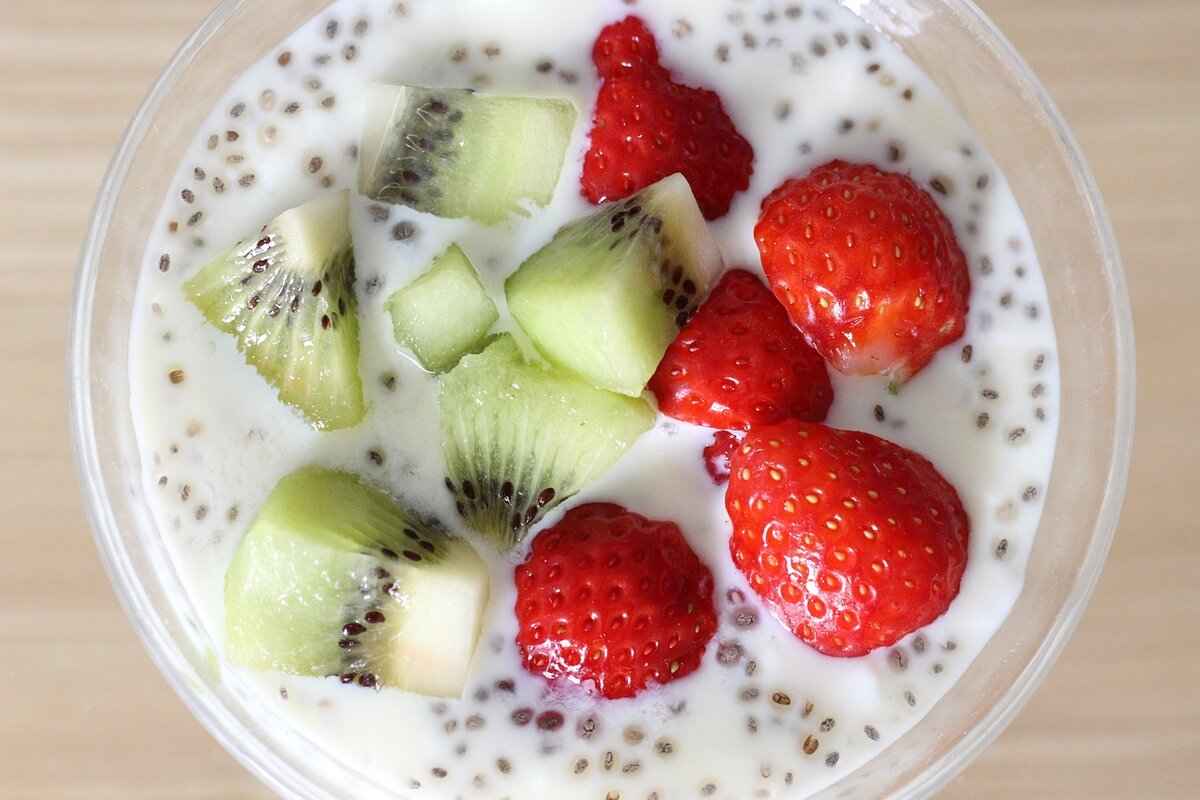
What Do Studies Say About Chia Seeds and Weight Loss?
Chia seeds have gained significant attention in the health and wellness community, particularly regarding their potential role in weight loss. Numerous studies have explored the effects of these tiny seeds on weight management, providing valuable insights into their benefits and effectiveness. This article delves into the research surrounding chia seeds and their impact on weight loss, highlighting key findings and practical applications.
Several studies have examined the effects of chia seeds on weight loss, providing insights into their potential benefits and effectiveness as part of a weight-loss strategy. The research indicates that incorporating chia seeds into a balanced diet may assist individuals in managing their weight more effectively.
One of the primary reasons chia seeds are associated with weight loss is their high fiber content. When consumed, chia seeds absorb water and expand in the stomach, which can lead to a feeling of fullness or satiety. This mechanism may help reduce overall calorie intake, making it easier for individuals to stick to their weight-loss goals.
Research published in the Journal of Nutrition demonstrated that individuals who included chia seeds in their meals reported increased feelings of fullness compared to those who did not. This enhanced satiety is crucial for weight management, as it can lead to lower food consumption throughout the day.
While many studies focus on short-term effects, some research has explored the long-term benefits of chia seeds in weight management. A study published in the International Journal of Obesity found that participants who consumed chia seeds regularly maintained their weight loss over an extended period compared to those who did not include them in their diet. This suggests that chia seeds may play a role in sustainable weight management.
Another significant finding from the research is that chia seeds can help reduce caloric intake. A study conducted by the University of Toronto revealed that participants who consumed chia seeds as part of their daily diet experienced a decrease in their overall calorie consumption. This reduction is attributed to the seeds’ ability to promote fullness and prevent overeating.
Chia seeds are not only beneficial for weight loss but also offer a nutritionally dense profile. They are rich in omega-3 fatty acids, protein, and essential vitamins and minerals. This combination of nutrients supports overall health and can enhance the body’s ability to manage weight effectively.
Incorporating chia seeds into your daily meals is simple and versatile. They can be added to smoothies, salads, or yogurt, making them an easy addition to various dishes. Additionally, chia seed puddings are a popular option, allowing individuals to enjoy a nutritious snack while benefiting from the seeds’ weight loss properties.
While chia seeds are generally safe for most people, some may experience digestive discomfort, particularly if consumed in large quantities. It’s essential to drink plenty of water when adding chia seeds to your diet to avoid potential bloating or gas.
In conclusion, the research surrounding chia seeds and weight loss is promising, with studies indicating their potential to aid in weight management through mechanisms such as increased satiety and reduced caloric intake. By incorporating chia seeds into a balanced diet, individuals may find it easier to achieve their weight loss goals while enjoying the numerous health benefits these seeds provide.
Research Findings
Research findings on the benefits of chia seeds for weight management have garnered significant attention in the health and wellness community. These tiny seeds, derived from the Salvia hispanica plant, are not only rich in nutrients but also play a crucial role in promoting satiety and reducing overall calorie intake. This article delves into the scientific evidence supporting the use of chia seeds as a weight-loss aid, emphasizing their effectiveness when integrated into a balanced diet.
Numerous studies have explored the impact of chia seeds on weight loss, showcasing their potential as a valuable addition to a weight management strategy. Research indicates that the incorporation of chia seeds into daily meals can lead to significant reductions in hunger and overall caloric consumption.
One of the primary mechanisms through which chia seeds aid in weight loss is their high fiber content. When consumed, chia seeds can absorb up to 12 times their weight in water, forming a gel-like substance in the stomach. This expansion can create a feeling of fullness, leading to decreased hunger and lower calorie intake throughout the day.
- Appetite Regulation: A study published in the Journal of Nutrition found that participants who included chia seeds in their diet reported a significant reduction in appetite compared to those who did not.
- Caloric Intake: Another research paper highlighted that individuals who consumed chia seeds experienced a decrease in overall caloric intake, which is essential for weight management.
- Long-Term Effects: While short-term studies show promising results, ongoing research is needed to understand the long-term effects of chia seeds on weight loss and maintenance.
Chia seeds are not only effective for weight management but are also packed with essential nutrients. They provide a rich source of omega-3 fatty acids, protein, and various vitamins and minerals. This nutritional density supports overall health, making them a valuable addition to any weight-loss plan.
To maximize the benefits of chia seeds, consider incorporating them into your meals in various ways:
- Chia Seed Puddings: Soaking chia seeds in milk or plant-based alternatives creates a nutritious pudding that can serve as a satisfying snack or breakfast.
- Smoothies: Adding chia seeds to smoothies enhances their nutritional value without altering the flavor, making it an easy addition to your diet.
- Salads: Sprinkling chia seeds on salads provides a delightful crunch and boosts the meal’s fiber content.
While chia seeds offer numerous benefits, it is essential to consume them in moderation. Some individuals may experience digestive discomfort, such as bloating or gas, particularly if they are not adequately hydrated. Therefore, it’s crucial to increase water intake when adding chia seeds to your diet.
In summary, the research findings on chia seeds reveal their potential as an effective tool for weight management. With their ability to promote satiety, reduce caloric intake, and provide essential nutrients, chia seeds can be a valuable addition to a balanced diet. As with any dietary change, it is advisable to consult with a healthcare professional, especially for individuals with specific health concerns or dietary restrictions.
Long-Term Effects
When it comes to weight loss, long-term studies are essential to fully understand the effects of chia seeds on body composition and overall health. While current findings suggest that chia seeds may play a beneficial role as part of a comprehensive weight-loss plan, the exact mechanisms and long-term impacts require further investigation.
Long-term studies provide valuable insights into how chia seeds affect weight loss over extended periods. They help researchers assess not only the immediate effects of chia seeds but also their sustainability as a weight-loss aid. Additionally, these studies can reveal potential side effects or health benefits that may not be apparent in short-term research.
Recent studies have highlighted several ways in which chia seeds can contribute to weight management:
- Appetite Control: Chia seeds are high in fiber, which expands in the stomach and promotes a feeling of fullness.
- Hydration: Their ability to absorb water can help maintain hydration levels, which is crucial for metabolic processes.
- Nutritional Density: Chia seeds are packed with essential nutrients, making them a healthy addition to any weight-loss plan.
Nutritionists and health experts often recommend incorporating chia seeds into a balanced diet. They emphasize that while chia seeds can aid weight loss, they should not be viewed as a magic solution. Instead, they work best when combined with other healthy lifestyle choices, such as regular exercise and a well-rounded diet.
Despite the promising findings, there are challenges in the current research landscape:
- Variability in Results: Different studies may yield varying results due to factors such as participant demographics, dietary habits, and study duration.
- Need for Standardization: More standardized methodologies are required to draw definitive conclusions about chia seeds and their long-term effects on weight loss.
Future research should focus on long-term trials that monitor participants over extended periods. This will help clarify how chia seeds can be integrated into weight-loss strategies effectively. Studies that also consider the psychological aspects of eating and lifestyle changes will provide a more holistic view of how chia seeds can support weight management.
In summary, while current findings suggest that chia seeds may be beneficial as part of a comprehensive weight-loss plan, long-term studies are necessary to fully understand their effects. As research continues to evolve, it will be interesting to see how chia seeds fit into the broader conversation about effective weight management strategies.
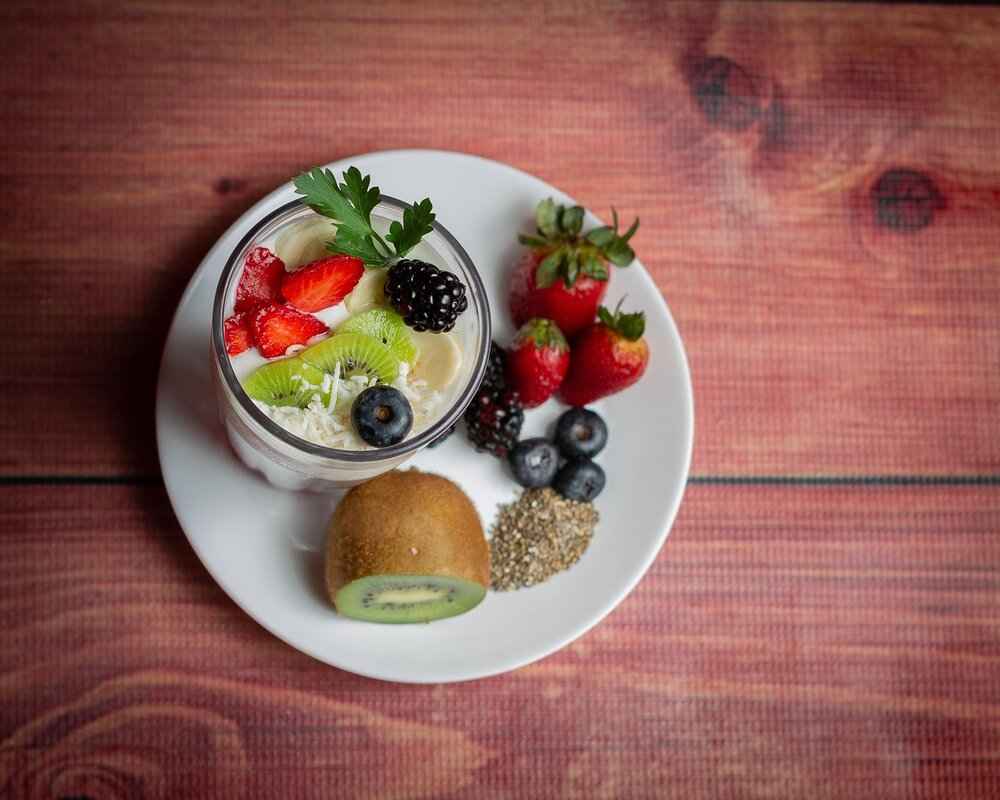
Can Chia Seeds Replace Other Foods?
Chia seeds have gained popularity as a superfood due to their numerous health benefits. However, it’s important to understand that while these tiny seeds are nutritious, they should not be seen as a direct substitute for other healthy foods. A well-rounded diet is essential for achieving and maintaining effective weight management.
Chia seeds are rich in fiber, omega-3 fatty acids, and protein, which contribute to their status as a healthful addition to any diet. However, they lack certain nutrients that are vital for overall health. For instance, while chia seeds provide some protein, they do not contain all essential amino acids in sufficient quantities. Thus, relying solely on them can lead to nutritional deficiencies.
A balanced diet consists of a variety of food groups, including:
- Fruits and Vegetables: Provide essential vitamins, minerals, and antioxidants.
- Whole Grains: Offer fiber and energy to fuel your daily activities.
- Lean Proteins: Important for muscle maintenance and repair.
- Healthy Fats: Crucial for brain health and hormone production.
Incorporating a wide range of foods ensures that you receive all necessary nutrients for optimal health, which chia seeds alone cannot provide.
Chia seeds can be a valuable addition to your meals, offering benefits such as improved satiety and enhanced digestive health. However, they should complement a diet rich in diverse nutrients. For example:
- Mix with Yogurt: Combine chia seeds with yogurt for a nutritious snack that also includes probiotics.
- Add to Smoothies: Blend chia seeds into smoothies for added fiber and omega-3s.
- Include in Salads: Sprinkle on salads for a crunchy texture and nutrient boost.
While chia seeds are healthy, moderation is vital. Consuming excessive amounts can lead to unwanted calorie intake, which may hinder weight loss efforts. A typical serving size is about 1-2 tablespoons per day. This allows you to enjoy their benefits without overindulging.
Over-relying on chia seeds can have potential drawbacks. For instance:
- Digestive Issues: High fiber intake from chia seeds can cause bloating or discomfort if not accompanied by adequate hydration.
- Imbalance in Nutrients: Focusing too much on chia seeds may lead to a lack of variety in your diet, resulting in missing out on other essential nutrients.
In summary, while chia seeds are a nutritious food that can support weight management, they should not replace other essential foods in a balanced diet. To achieve optimal health and effective weight management, it is crucial to maintain a diverse diet that includes a variety of food groups. By doing so, you can enjoy the benefits of chia seeds while ensuring that your body receives all the nutrients it needs.
Complementing a Healthy Diet
Chia seeds have gained immense popularity as a superfood, but their true power lies in how they can complement a healthy diet. While they offer impressive nutritional benefits, it’s essential to understand that they should be consumed in conjunction with a variety of other foods to achieve optimal health and weight loss.
Chia seeds are nutrient-dense and provide a host of benefits, including high fiber content, omega-3 fatty acids, and protein. However, they are not a magic solution for weight loss. For effective weight management, they should be integrated into a well-rounded diet that includes:
- Fruits: Packed with vitamins, minerals, and antioxidants.
- Vegetables: Low in calories and high in nutrients, they help maintain satiety.
- Whole Grains: Provide essential carbohydrates and fiber for sustained energy.
- Lean Proteins: Crucial for muscle maintenance and overall health.
When added to a balanced diet, chia seeds can significantly enhance nutritional intake. Their high fiber content can promote digestive health, while their healthy fats support heart health. By incorporating chia seeds, you can:
- Boost Fiber Intake: Just two tablespoons of chia seeds contain about 11 grams of fiber, aiding in digestion and promoting feelings of fullness.
- Increase Omega-3 Levels: These seeds are one of the richest plant sources of omega-3 fatty acids, which are vital for brain health and reducing inflammation.
- Enhance Protein Consumption: With about 4 grams of protein per serving, chia seeds can help meet daily protein requirements, especially for vegetarians and vegans.
Integrating chia seeds into your meals is both easy and versatile. Here are some practical ideas:
- Chia Seed Pudding: Soak chia seeds in almond milk or coconut milk overnight for a creamy, nutritious breakfast.
- Smoothies: Add a tablespoon of chia seeds to your favorite smoothie for added texture and nutrients.
- Salads and Soups: Sprinkle chia seeds on salads or mix them into soups for a nutritional boost without altering the flavor.
While chia seeds can support weight loss, they work best when part of a balanced diet. Their ability to absorb water and expand in your stomach can help control appetite, but relying solely on them will not yield significant results. It’s important to:
- Practice Portion Control: Overconsumption can lead to excess calorie intake, counteracting weight loss efforts.
- Stay Hydrated: Ensure adequate water intake when consuming chia seeds to avoid digestive discomfort.
While generally safe, some individuals may experience digestive issues if chia seeds are not consumed with enough water. It’s crucial to listen to your body and introduce them gradually into your diet.
In conclusion, chia seeds can be a valuable addition to a healthy diet, but they should not be viewed as a substitute for other nutritious foods. By combining them with a variety of fruits, vegetables, whole grains, and lean proteins, you can maximize their benefits and support your overall health and weight loss goals.
Portion Control
When it comes to incorporating chia seeds into your diet, practicing is crucial. While these tiny seeds are packed with nutrients and offer numerous health benefits, consuming them in excessive amounts can lead to unintended consequences, particularly for those focused on weight loss.
Chia seeds are known for their ability to absorb water and expand in the stomach, which can create a sense of fullness. However, this characteristic also means that if consumed in large quantities, they can contribute to a significant increase in calorie intake. It’s essential to understand that even healthy foods can lead to weight gain if eaten in excess.
- Recommended Serving Size: Most nutritionists suggest a serving size of about 1 to 2 tablespoons of chia seeds per day.
- Caloric Content: One tablespoon of chia seeds contains approximately 58 calories. Therefore, consuming more than the recommended amount can quickly add up.
- Balance with Other Foods: It’s essential to consider the overall caloric intake from your meals. If you add chia seeds, you may need to adjust the portions of other foods to maintain a balanced diet.
Chia seeds are rich in essential nutrients, including fiber, omega-3 fatty acids, and protein. While these nutrients are beneficial, they can also contribute to a higher caloric intake if not monitored. For instance:
- Fiber: Chia seeds contain about 5 grams of fiber per tablespoon, which is beneficial for digestive health and can enhance feelings of fullness.
- Healthy Fats: The omega-3 fatty acids present in chia seeds promote heart health, but fats are calorie-dense, so moderation is key.
- Protein: With around 2 grams of protein per tablespoon, chia seeds can help with muscle maintenance during weight loss.
To effectively manage your chia seed intake while reaping their benefits, consider the following strategies:
- Pre-Measure Portions: Use a measuring spoon to portion out your chia seeds to avoid mindless eating.
- Incorporate into Meals: Mix chia seeds into smoothies, oatmeal, or yogurt to enhance their nutritional profile without overindulging.
- Stay Hydrated: Since chia seeds absorb water, ensure you drink sufficient fluids throughout the day to aid digestion and prevent discomfort.
Being mindful of how your body responds to chia seeds is essential. If you experience any digestive discomfort, such as bloating or gas, it may be a sign that you are consuming too much. Adjusting your intake and maintaining a balanced diet can help mitigate these effects.
Incorporating chia seeds into your diet can be a beneficial addition to your weight loss journey, provided you practice . By understanding the nutritional impact and following effective strategies, you can enjoy the health benefits of chia seeds without compromising your weight loss goals.
Frequently Asked Questions
- Can chia seeds really help with weight loss?
Yes, chia seeds may aid in weight loss due to their high fiber content, which promotes a feeling of fullness and reduces overall calorie intake. They also help with hydration, which can support weight management.
- How should I incorporate chia seeds into my diet?
You can easily add chia seeds to your diet by mixing them into smoothies, yogurt, or oatmeal. Making chia seed puddings is also a popular and nutritious option!
- Are there any side effects of consuming chia seeds?
While chia seeds are generally safe, some individuals may experience digestive discomfort, such as bloating or gas, especially if they don’t drink enough water. It’s important to start with small amounts.
- How many chia seeds should I eat per day?
A typical serving size is about 1-2 tablespoons of chia seeds. However, it’s best to listen to your body and adjust based on how you feel.
- Can chia seeds replace other foods in my diet?
Chia seeds should not replace other nutritious foods but can complement a balanced diet. They work best alongside fruits, vegetables, and whole grains for optimal health.














